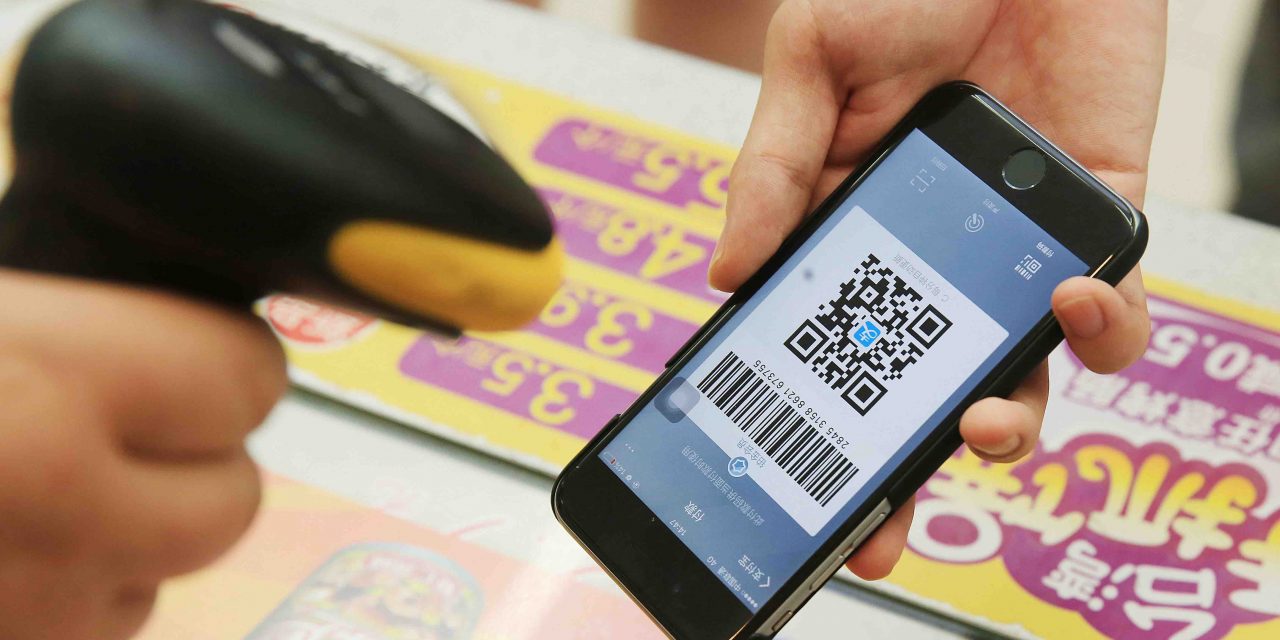Break through the blocking points of card swiping and mobile payment, and form a good payment environment as soon as possible.
"Shanghai snacks are rich and delicious, but you have to scan the QR code to pay when entering any store. It's so inconvenient!" When Egyptian tourist Abin talked about his recent trip to Shanghai, he was full of praise for the attractions and restaurants, but the scored for pay is negative.
As the epidemic subsides and the economy recovers, Shanghai's exchanges with the world are gradually resuming, and overseas tourists are gradually increasing. However, "convenient consumption and payment" is still a major pain point that hinders international tourists from entering the country for consumption. Recently, WeChat and Alipay have successively announced comprehensive upgrades of international bank card user services and the launch of new international versions. However, there are still foreign tourists who are less accepting of mobile payments due to differences in payment habits and security and privacy concepts.
How to alleviate payment pain points and improve the convenience of payment services? Recently, the municipal government’s counselor’s research group conducted a survey on improving the convenience of domestic payment for inbound travelers. The counselors suggested that government departments and various market entities should be promoted to work together to break the bottlenecks of credit card and mobile payment, so as to form a good payment environment as soon as possible.
Business has shrunk, and many wild card POS machines have withdrawn from the market.
Before Japanese tourist Sato came to Shanghai, he exchanged RMB cash early and brought two VISA cards, but he still encountered obstacles. “Many merchants did not have credit card swiping machines, so I could only use cash, and some merchants could not give change. Sato said with a smile. Because of the inconvenience of payment, it helped him save a lot of money, but it also left him with regrets. "I fell in love with a set of porcelain. When I paid for it, I found that the POS machine was still an old version and my credit card couldn't be used. I didn't have enough cash with me, so I had to give it up."
Gu Xiaomin, counselor of the municipal government and leader of the research team, said that currently, our country is at the forefront of the world in the field of third-party mobile payment, and mobile payment is the main channel for daily consumer payment. However, many countries and regions, including developed countries in Europe and the United States, still use Cards and cash for the main forms of payment, and not so many people use mobile payment. Different payment habits have caused payment difficulties for them when they entered Shanghai.
The counselor's investigation found that due to the impact of the epidemic and financial regulatory policies in recent years, the foreign card acquiring business has gradually shrunk, and many wild card POS machines have withdrawn from the market. At present, most banks have withdrawn from the foreign card acquiring business market.
It is a common feeling among overseas tourists that card payment machines are difficult to find and the credit card payment rate is low. "Except for foreign-related hotels, many consumer places are not equipped with foreign card POS machines, and the catering industry almost all requires scan-code payment, which makes foreign tourists feel very inconvenient." Gu Xiaomin said.
The research team commissioned Huifu to conduct an on-site sampling survey by selecting 401 merchants in business districts and landmarks with a high frequency of foreign tourists in the city. The results showed that foreign tourists most wanted to use credit cards and cash to pay, but among the 401 merchants surveyed Only 183 companies have installed wild card POS machines, accounting for 45.39%, less than half. At the same time, due to the high handling fees for foreign card swiping, the single transaction rate basically ranges from 2.5% to 3.5%, which is much higher than Alipay’s 3.8 per thousand. Many merchants are more willing to guide foreign tourists to use cash or Alipay or WeChat. The card swipe rate is only 23.19%.
Strict limits and low mobile payment acceptance
In China, it is very convenient for people to use mobile payment for consumption. So, are foreign tourists willing to activate mobile payment such as Alipay or WeChat?
Recently, Alipay announced the launch of a new international version to further optimize the entire payment process experience for overseas tourists, and can be linked to five major overseas international bank cards. WeChat also announced that WeChat Pay has completed a comprehensive upgrade of services for international bank card users. This also means that foreign tourists will be able to open and use mobile payments more conveniently. But some people still have concerns. The reporter randomly interviewed 5 tourists who were in Shanghai for a short period of time. Except for one tourist who has opened Alipay, the other 4 have not yet opened mobile payment. Some people expressed concerns about the risks of binding foreign cards for payment. Using mobile payment may lead to the leakage of personal information. , or the risk of fraud, etc.
Because mobile payment is not enabled, these tourists are hindered in many aspects such as taking taxis, visiting scenic spots, and dining. “You have to scan the QR code to make a reservation when going to scenic spots, and you have to scan the QR code to eat.” A tourist from Israel told reporters that the hotel front desk helped him book a taxi to the Bund. When he returned from the trip, he found that he can't call a taxi, "I didn't install the taxi software and couldn't call a taxi. I finally got a taxi, but I found that the driver only had personal Alipay and WeChat accounts to collect money." Andy, an American tourist, visited Shanghai and Hangzhou during the summer. “My Chinese friends paid for it on my behalf, and then I transferred the money to him.”
The research team’s research found that overseas tourists’ mobile payment acceptance is low and the limits are strict. Most foreigners who have been stationed in Shanghai for a long time have already applied for internal cards and are proficient in using Alipay and WeChat. However, foreign tourists or business people entering the country for a short period of time are often affected by differences in payment habits and concepts of security and privacy, and are less receptive to binding foreign cards for mobile payments.
Even if a consumer card is bound, there is still a limit issue. It is understood that at present, the single transaction limit for overseas bank card payments bound to Alipay is 3,000 yuan, with a monthly accumulation of 50,000 yuan and an annual accumulation of 60,000 yuan. "This mobile payment limit can solve the needs of dining, accommodation, tourist attractions, etc., but it is difficult to meet the needs of inbound people to purchase high-value commodities such as jewelry, porcelain, and watches, and it is not conducive to local brands going abroad." Gu Xiaomin said.
Open up the blocking points and form a whole chain of payment convenience
"The issue of domestic payment for inbound travelers is not only necessary to deepen the construction of an international consumption center city, but also related to Shanghai's long-term opening up and development." In the view of the counselors, if Shanghai wants to build an outstanding global city by 2035, it must Shanghai is required to have a significant influence on the prices of global production factors, and to have global business opportunities and investment attractions. The realization of global business opportunities and investment attractions cannot be achieved without convenient transaction payment services.
How to break through the blocking points and create a good payment environment? The counselors believe that it is necessary to strengthen overall planning at the municipal level, systematically sort out common scenarios and problems during the domestic consumption process of inbound travelers, and organize departments such as commerce, finance, culture and tourism, transportation, foreign affairs, and public security to jointly study and formulate targeted policies. Policies and measures to clear up key blockages.
"The first stop of entry is the key point to solve payment convenience." Gu Xiaomin believes that to move the payment convenience checkpoint to the entry place, it is recommended to set up special payment service counters at the first stop for foreigners such as airports and docks to provide Currency exchange, promotion of mobile payment applications, help with downloading and usage, etc. “This is not only to help immigrants understand the relevant situation at the first time and quickly integrate into Shanghai life, but also to prevent them from having payment problems after leaving the station, causing damage to the entire city. bad impression."
"Domestic payment is a systematic project. In addition to moving the convenience gate forward, various payment scenarios need to be expanded." Gu Xiaomin believes that in addition to commercial outlets and financial institutions, domestic payment also involves all aspects, such as tourist attractions, performances and exhibitions, sports events, etc. Booking and purchasing tickets, taking taxis, public transportation, renting vehicles, purchasing air tickets, medical care, beauty, experiential consumption and service consumption, etc. This requires the collaboration and integration of the entire chain and all scenarios.
In June this year, the Shanghai Branch of the People's Bank of China and the Municipal Commerce Commission jointly issued the "Notice on Further Optimizing Domestic Payment Services for Inbound Persons". The "Notice" requires 12 key business districts as key areas to create a safe and convenient foreign card acceptance environment. . In the opinion of the counselors, although this has basically covered the city’s famous commercial areas, the layout of certain characteristic areas and industries should be strengthened based on the consumption preferences and actual needs of foreigners. For example, combined with foreigners’ understanding of Chinese history According to the preferences of some foreigners and traditional culture, they will be deployed in Zhujiajiao, Guangfulin Park, etc., and based on the medical and beauty needs of some foreigners, they will be deployed in related industries and units.
In view of the current serious lack of coverage of POS machines for foreign card swiping payment and the fact that mobile QR code payment has become the mainstream, the counselors suggested upgrading and rearranging POS machines and promoting the application of smart POS machines compatible with comprehensive functions such as card swiping, QR code scanning, and network monitoring.
The research team also recommended that we study and improve foreign card mobile payment services, and organize relevant departments and enterprises to do some exploration and pilot work on simplifying process procedures, relaxing payment limits, and strengthening supervision of scientific and technological means on the premise of ensuring financial security, when conditions are ripe. Corresponding policies and measures can be introduced and promoted and implemented. At the same time, relevant government departments should provide guidance and support to domestic third-party payment institutions that are willing and able to acquire foreign cards.
This is a place for show life about china, If these articles help you life better in china, Welcome to share this website to your friends, Or you can post questions about china life in FAQ, We will help you to find the right answer.





![[How To]: Play the Lottery in Shanghai](https://www.life-china.cn/wp-content/uploads/2019/07/1530532366-440x264.jpg)
Recent Comments